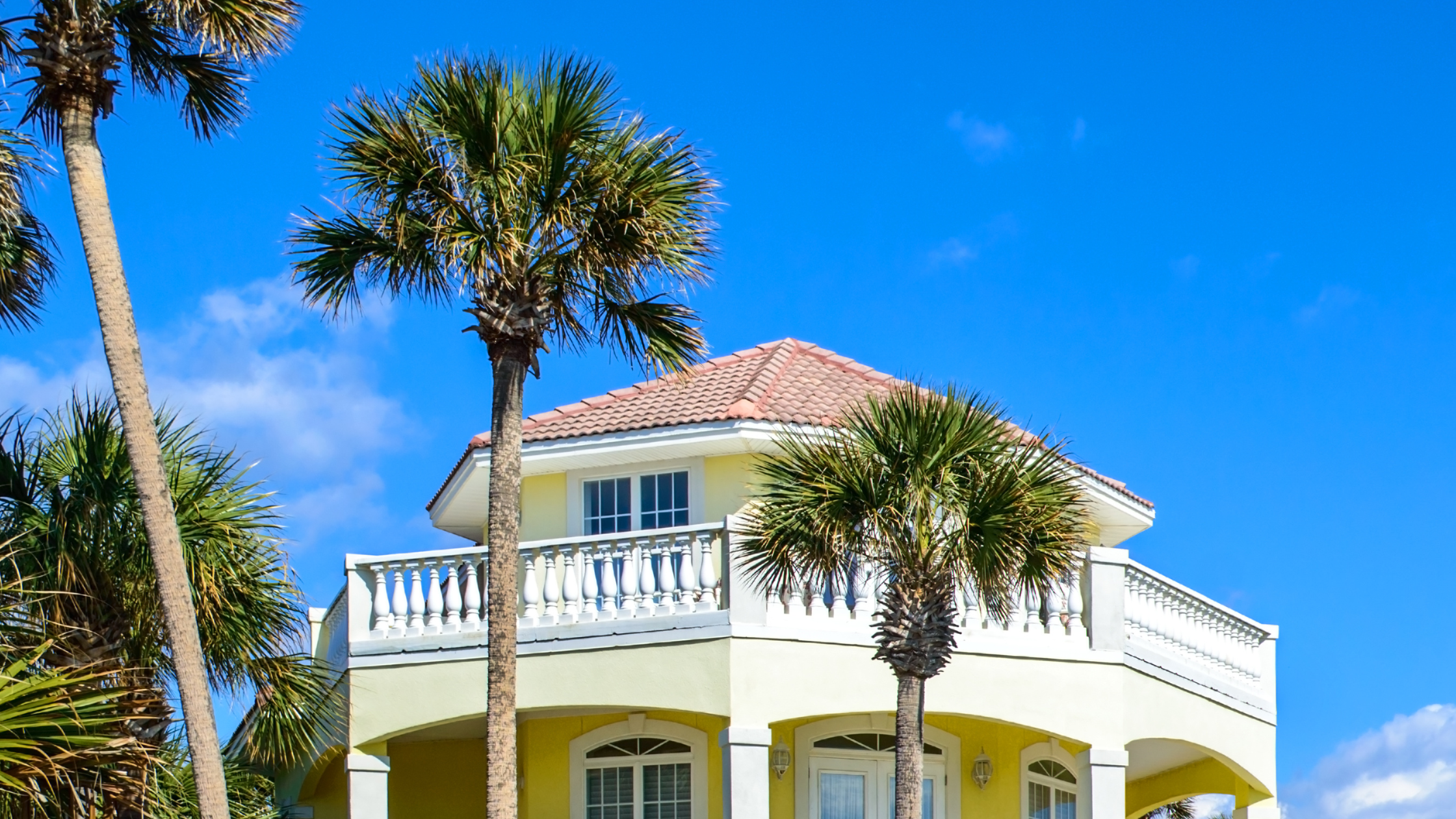
Sheets and Linens
When choosing sheets for your vacation rental, consider opting for dark colors. Dark sheets hide stains better than lighter colors. They are practical and stylish, making maintenance easier. Consider fabrics with stain-resistant properties. Additionally, choose high-quality, durable fabrics to withstand frequent washing.
For your vacation rental, we suggest that you provide linens based on the number of occupants, not the number of rooms. Supply one bath towel and washcloth per guest, plus two hand towels per bathroom. Some companies offer designated "makeup" towels to prevent staining, but this is optional.
We do recommend having a total of three sets of linens for each bed. We recommend putting one set on the bed and keeping the extra two sets in a locked owner’s closet for emergency situations.
This will help to optimize turnovers as there may be rips, stains, etc. and having back ups linens are helpful for when difficult laundry situations arise.
We also recommend having three sets of towels per guest and keeping two of the backup sets per guest in a locked owner’s closet.
If you have specific sheets or towels that you as the owner will only use, we recommend placing them in a special container or bag so they do not get mixed up with other sheets and towels. We also recommend storing them with your other personal belongings that is locked.
Trash Management
A lot of vacation rental owners do not live locally. We recommend collaborating with a year round neighbor that can help you take your trash bins out and in on trash day.
To ensure a smooth process, we recommend providing clear trash can instructions:
- Trash Collection Day: Specify the exact day of the week when trash is collected.
- Location: Clearly indicate where guests should place the trash cans for collection.
- Responsibility: Outline who is responsible for moving the trash cans to and from the designated collection spot.
Thermostat Settings
We highly recommend a “smart” thermostat so you can control the temperature remotely. We understand the importance of maintaining a comfortable and energy-efficient environment for your vacation rental. To help you achieve this, we recommend the following thermostat settings:
- Summer: Set the thermostat to 75-78°F (24-26°C) when occupied and 85°F (29°C) when unoccupied.
- Winter: Set the thermostat to 68-72°F (20-22°C) when occupied and 55°F (13°C) when unoccupied.
Make sure to provide clear instructions for your guests on how to use the thermostat. Additionally, improve energy efficiency by ensuring all doors and windows are well-sealed and using thermal curtains or blinds to help regulate temperature.
If you have a service professional working in your home, we do recommend adjusting the temperature based on the service being provided and the provider's terms and conditions.
Outside Grill
Many vacation owners have moved away from providing grills as they are hard to maintain long term. It is ultimately your decision and your home. Select a grill that matches your property’s size and guest preferences, whether it’s a gas, charcoal, or electric grill. Advise guests on safe grill operation and cleaning procedures. Encourage them to clean the grill after each use to prevent grease buildup and ensure a pleasant cooking environment. Sparkle does not provide grill cleaning. We recommend if you opt to have a grill, that each guest cleans up after themselves. We recommend having clear directions, use and maintenance if you opt to have a grill.
Parties or Unregistered guests
If a guest brings multiple unregistered guests into the vacation rental, there are a few ways to resolve the situation. First, the host can turn them away upon check-in if too many people try to check-in. Second, if the guests show up after check-in and exceed the maximum capacity, you can consider the following:
- 1-2 people: charge them a small fee (as stated in your property guidelines)
- If it’s 3 or more, contact the platform’s customer support to cancel their reservation and ask them to leave the property
Either way, it is best to approach the situation with composure and give them the benefit of the doubt. Guests are more likely to respond better if you don’t directly accuse them of violating your policies.
If you manage a short-term rental remotely, noise monitoring technologies like NoiseAware offer plug-in devices that monitor your rental safely. Starting at $199 for a condo and $299 for a single-family home unit, these devices alert a host when the noise in a rental reaches a certain level. Then, the host can message the guest to lower their volume. Implementing monitoring technology like NoiseAware allows you to oversee your rental more efficiently, preventing noise complaints.
Damaged/Missing Items
Unfortunately, accidents happen, and property can get broken, damaged, or stolen while managing a vacation rental property. We suggest documenting the worth of your belongings and getting insurance to cover your property. Then, in the event something is damaged or missing, you will have evidence of its existence.
For stolen items:
If you suspect a guest stole an item, first, you should contact the guest if they packed it by accident. Then, go to the Resolution Center to request the monies from your security deposit for reimbursement. If the stolen items are worth filing an insurance claim, call the police and file a police report.
Leftover Food/Drinks
If you have a kitchen space in your rental property, chances are guests will leave something behind. Although discretion is ultimately up to you, we recommend that you throw away all opened and used food and beverages.
If leftover items are unopened, you may choose to leave them presented nicely in a cabinet labeled for guests to take. However, perishables, fruits, vegetables, or other opened ingredients should be donated or thrown away before the next check-in. Sparkle does not track expiration dates of food that is left behind.
Check-in/Check-out Policies
Vacation rentals don’t usually have the extra means or storage to drop off bags before checking in. Furthermore, it would be unfair for a cleaner to do their job while working around extra baggage. Therefore, it is best to include a “no early check-in” rule in your property policies for these reasons. However, if the guests have no other option, you can consider charging a small fee for a rushed clean and early check-in if it is within your means. The same goes for a late check-out: charge a fee if they are not out by the allotted time.
Make managing a vacation rental less stressful by reinforcing your check-in and check-out policies with the guest before entering the property. The more you state your rules, the more likely they will abide by them. We recommend a minimum of a 6 hour window between the check in time and check out time for same day turnovers.
Pets, Service Dogs/Emotional Support Dogs
If your vacation rental property is not explicitly labeled as “pet-friendly” and stated in your policies, guests should not bring animals to the unit. However, people may sneak them in, which can cause concern for future guests or cleaners with allergies. Upon confirming a guest’s reservation, you should mention the “no-pet rule” once accepting the reservation, so they are aware.
If pets significantly disrupt the unit, you can impose an immediate departure and monetary fine if guests break the rule.
Inventory Management
Managing vacation rental properties requires organization and the right tools. Ensuring each property is fully stocked with high-quality inventory is essential for guest comfort and securing five-star reviews. Tracking inventory helps manage turnovers efficiently and addresses issues like theft or damage, aiding in budgeting for replacements. Using an inventory checklist can streamline this process, saving time, hassle, and money.
-
Inventory Checklist
Creating an inventory list for your vacation rental, similar to a grocery list, helps ensure you don't forget important items. Keep a laminated copy in your owner’s closet of all the items. Also notate the “low” levels that you would like to be informed about for each item (example, 4 rolls of paper towel).
A well-stocked property enhances the guest experience. Organize the master list by room for easy scanning and editing, covering essentials for the bedroom, bathroom, kitchen, and more. For hosts managing multiple properties, tailor inventory lists to each property's target market, such as families for a beach property or couples for a city loft, possibly creating separate lists for each.
-
Stock Essential Items
Essential items are what your guests expect to have available to them upon check-in. Some examples of essential items that recommends hosts provide include:
-
- Linens for each available bed
- One pillow and towel per person
- Toilet paper
- Soap
The quantity of items you need depends on the number of guests and the length of their stay. For long-stay guests, consider adding extras like blankets, towels, or toiletries. Mentioning these items in your listing can attract more guests by highlighting the amenities you provide.
-
Room by Room
Go through each room and decide what inventory your guests need for that space. When preparing your vacation rental, prioritize essential items for each room to minimize theft or damage risks. This includes restocking necessities like paper products and soap regularly. Additionally, consider larger, one-time investments such as furniture or appliances that enhance guest comfort. For instance, in the living room, items like a TV, board games, and books can enhance the guest experience, provided they are well-maintained and available for each check-in.
-
Take Photos
Taking photos of your vacation rental is beneficial for managing turnovers effectively. They serve as a visual reference for your cleaning team, ensuring consistency in setup for each guest arrival. This is especially useful if you have different cleaners working on rotations. Photos can also guide how inventory should be stored or replenished. Moreover, having room photos helps document the property's condition, aiding in insurance claims for damages or theft incidents that may arise later.




.png)


.png)


